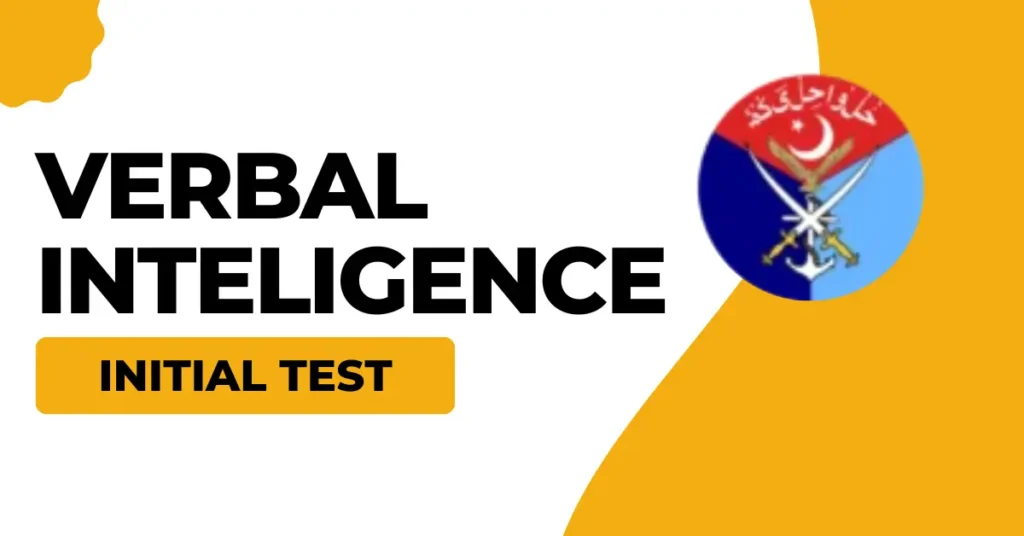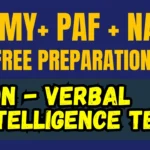1. Introduction of Verbal Inteligence Test
Definition and Relevance
Verbal intelligence refers to the ability to understand, analyze, and use language effectively. This type of intelligence is crucial for tasks involving communication, problem-solving, and comprehension. Understanding verbal intelligence is essential as it influences educational achievements, professional success, and interpersonal relationships.
Overview of the Article
This article explores the concept of verbal intelligence, including its types, importance, and preparation strategies. It also provides sample multiple-choice questions to help readers gauge their verbal intelligence skills.
2. What is Verbal Inteligence Test ?
Definition
Verbal intelligence is a measure of an individual’s capacity to use language skillfully. It encompasses various abilities such as vocabulary usage, reading comprehension, and the capacity to reason through verbal problems.
Components of Verbal Inteligence Test
- Vocabulary: Understanding and using words effectively.
- Comprehension: Interpreting and analyzing written and spoken information.
- Analogical Reasoning: Identifying relationships between concepts through language.
- Verbal Fluency: The ease with which one can produce and organize words and ideas.
3. Types of Verbal Inteligence Test
Vocabulary Tests
These tests assess a person’s knowledge of word meanings and their ability to use them in context. Common examples include synonym and antonym questions.
Comprehension Tests
Comprehension tests evaluate how well an individual understands written passages. These tests typically involve reading a passage and answering questions about its content.
Analogies and Logical Reasoning Tests
These tests measure the ability to recognize relationships between pairs of words or concepts. For example, if A is to B as C is to ?, the test taker must identify the correct word to complete the analogy.
Verbal Fluency Tests
Verbal fluency tests assess how quickly and accurately a person can generate words related to a specific category or starting with a particular letter.
4. Importance of Verbal Inteligence Test
Cognitive and Academic Benefits
High verbal intelligence is often associated with strong academic performance and cognitive abilities. It supports skills such as reading comprehension, critical thinking, and writing proficiency.
Professional and Social Implications
In the professional realm, verbal intelligence is crucial for effective communication, negotiation, and leadership. Socially, it helps in building relationships and understanding others.
Role in Daily Life
Verbal intelligence impacts everyday activities, from understanding instructions and engaging in meaningful conversations to solving problems and making decisions.
Visit Now : Official Website of Join Pak Army

5. How to Prepare for Verbal Inteligence Tests
Study Tips and Strategies
- Read Regularly: Enhance vocabulary and comprehension by reading diverse materials.
- Practice Analogies: Solve practice problems to improve reasoning skills.
- Expand Vocabulary: Use flashcards or apps to learn new words and their meanings.
Resources and Tools
- Books and Online Courses: Many resources are available to improve verbal skills.
- Practice Tests: Taking practice tests can help familiarize oneself with the test format and question types.
Practice Tests and Sample Questions
Engaging in practice tests can significantly boost performance. They help in identifying strengths and areas needing improvement.
6. Expert Insights and Case Studies
Insights from Cognitive Psychologists
Experts in cognitive psychology emphasize the role of verbal intelligence in overall cognitive development and its impact on academic and professional success.
Real-Life Applications and Examples
Case studies highlight how individuals with high verbal intelligence excel in careers requiring strong communication skills, such as teaching, writing, and public speaking.
7. Future Outlook
Emerging Trends in Testing
Advances in technology are leading to more sophisticated and adaptive verbal intelligence tests that provide a more accurate assessment of a person’s abilities.
Advances in Testing Methods
New methodologies, including computerized testing and artificial intelligence, are revolutionizing how verbal intelligence is measured and evaluated.
Practical Applications of Verbal Inteligence Test
Understanding verbal intelligence can lead to better educational practices, improved workplace communication, and more effective personal interactions.
8. Conclusion
Summary of Key Points
Verbal intelligence is a vital aspect of cognitive ability that influences various areas of life. By understanding its types and importance, individuals can better prepare for assessments and leverage their verbal skills effectively.
Final Thoughts and Call-to-Action
Improving verbal intelligence can lead to numerous benefits in both personal and professional life. Engage in continuous learning and practice to enhance your verbal abilities and achieve greater success.
9. Sample Verbal Inteligence Test Questions
Multiple-Choice Questions
- Which word is a synonym for “elaborate”?
- A) Simple
- B) Complex
- C) Plain
- D) Quick
- Choose the word that is most similar to “benevolent”:
- A) Evil
- B) Kind
- C) Indifferent
- D) Hostile
- If “flower” is to “petal” as “book” is to:
- A) Chapter
- B) Author
- C) Library
- D) Shelf
- Which of the following sentences is grammatically correct?
- A) She don’t like the movie.
- B) She doesn’t like the movie.
- C) She didn’t like the movie.
- D) She doesn’t likes the movie.
- Which word is the antonym of “sparse”?
- A) Scarce
- B) Dense
- C) Thin
- D) Rare
- Complete the analogy: “Pencil” is to “write” as “eraser” is to:
- A) Read
- B) Erase
- C) Draw
- D) Sketch
- What is the most appropriate word to complete the sentence: “The professor was very ______ about the new research findings.”
- A) Skeptical
- B) Excited
- C) Angry
- D) Dismissive
- Which of the following best defines “meticulous”?
- A) Careless
- B) Exact
- C) Speedy
- D) Unsystematic
- Find the correct usage: “He is an ______ student who completes all his assignments on time.”
- A) Diligent
- B) Casual
- C) Irresponsible
- D) Negligent
- If “dog” is to “bark” as “cat” is to:
- A) Meow
- B) Run
- C) Sleep
- D) Eat
- What is the best antonym for “articulate”?
- A) Eloquent
- B) Unclear
- C) Fluent
- D) Expressive
- Select the most appropriate word to complete the sentence: “Her response was so ______ that it left everyone speechless.”
- A) Ambiguous
- B) Profound
- C) Simple
- D) Predictable
- Which word means the opposite of “preliminary”?
- A) Final
- B) Initial
- C) Basic
- D) Introductory
- Choose the word that fits best: “His speech was filled with ______, making it both captivating and memorable.”
- A) Ambiguity
- B) Eloquence
- C) Simplicity
- D) Redundancy
- Answer: B) Eloquence
- What is the correct form of the verb in the following sentence: “If she _____ earlier, she would have been on time.”
- A) Leaves
- B) Left
- C) Had left
- D) Has left
- Answer: C) Had left
- Complete the analogy: “Hammer” is to “nail” as “key” is to:
- A) Lock
- B) Door
- C) Car
- D) House
- Answer: A) Lock
- Which word is the closest in meaning to “abundant”?
- A) Scarce
- B) Plentiful
- C) Insufficient
- D) Rare
- Answer: B) Plentiful
- Identify the sentence with correct punctuation:
- A) “I love reading, I also enjoy writing”
- B) “I love reading; I also enjoy writing.”
- C) “I love reading I also enjoy writing.”
- D) “I love reading. I also enjoy writing.”
- Answer: B) “I love reading; I also enjoy writing.”
- Select the best word to complete the sentence: “Her explanation was so ______ that everyone understood the complex process immediately.”
- A) Vague
- B) Clear
- C) Confusing
- D) Ambiguous
- Answer: B) Clear
- Which word is an antonym of “meticulous”?
- A) Precise
- B) Careful
- C) Sloppy
- D) Thorough
- Answer: C) Sloppy
Conclusion
Verbal intelligence is a key component of cognitive ability, influencing academic performance, professional success, and everyday interactions. Understanding its types and significance can help individuals prepare better for assessments and leverage their verbal skills in various aspects of life. By practicing with sample questions and following effective preparation strategies, one can enhance their verbal intelligence and achieve greater success in both personal and professional domains.



























